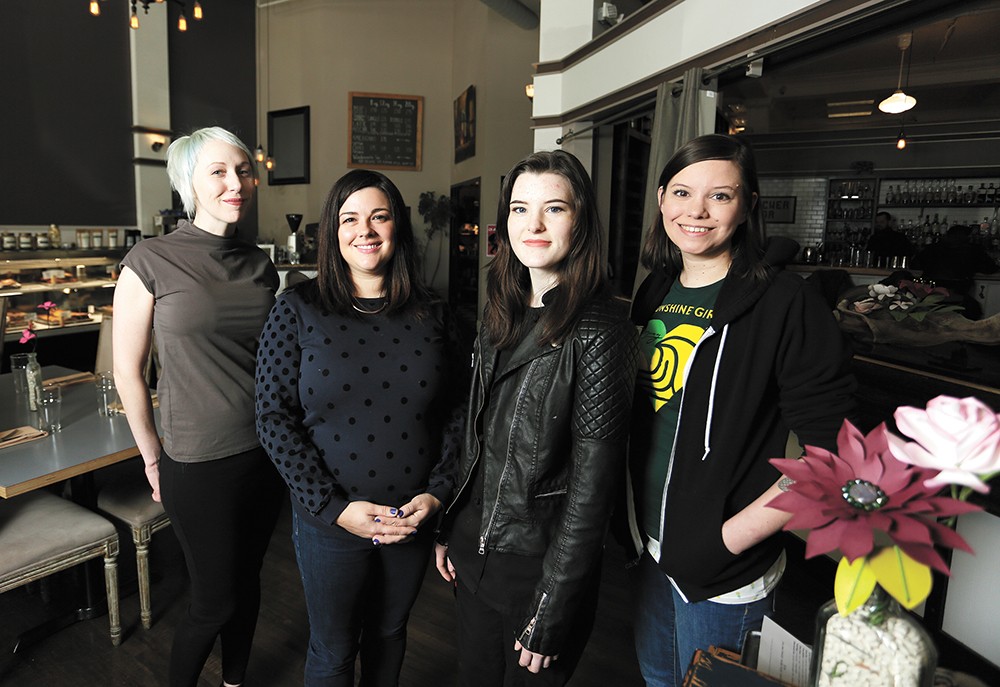In Her Place
Local women on sexism, success and overcoming gender barriers in the culinary profession

Naomi Boutz gets this a lot: “We’d like to thank the owner. Who owns this place anyway?”
“I am the owner,” she’ll reply, smiling to the inquiring patrons at her Coeur d’Alene restaurant, Vine & Olive Wine Bar and Eatery.
“No way!” Boutz says they’ll often exclaim. “But you do have a partner, right?”
As the sole proprietor of Vine & Olive, opened in 2017, Boutz’s is the only name on the business license. She’s happily married, but the European-inspired restaurant is entirely hers, and has been since the beginning, when her husband encouraged her to pursue her dream to open a wine bar.
Boutz doesn’t blame customers for these queries, which she believes aren’t meant to be rude. Even so, as Vine & Olive’s popularity grew, she started responding a little more firmly to the disbelief.
“I would get asked half a dozen times a week when it first opened,” she recalls. “It’s frustrating, because everyone else I worked for in the restaurant industry has not been asked that question so many times.” Boutz’s past employers were both male.
One explanation for why some diners may be hesitant to accept that a woman, married or single, could own a successful restaurant business on her own is because, statistically, so few actually do.
National figures paint a picture of predominantly male ownership and leadership in professional kitchens. While women make up more than half of all positions in food service, the breakdown of female-identifying workers in leadership is much lower. It’s estimated that around 33 percent of restaurants are majority-owned by women and 19 percent of all chefs are women, yet only 7 percent are head chefs. The gender wage-gap in food service jobs is also wide; women earn about 28 percent less.
The reasons are complex. Established female chefs and restaurant owners, in interviews and editorials, point to several: a lack of mentorship, sexism and sexual harassment, difficulty securing capital or investors, a lack of paid family leave. Less recognition of women chefs/owners by media and award-granting organizations have also been blamed.
These trends and associated behaviors towards women in food are reflected locally. The Inlander spoke with several local women, including Vine & Olive’s owner, an experienced bartender and a rising line cook. Some of the women we reached out to didn’t want to comment for fear of backlash, while others expressed concern about sharing certain details or naming past employers. The majority haven’t experienced the worst behaviors that male-dominated kitchens were accused of enabling in the wake of the #MeToo movement. But they repeatedly shared this sentiment: Women in food feel they need to work twice as hard as their male counterparts just to prove themselves capable.